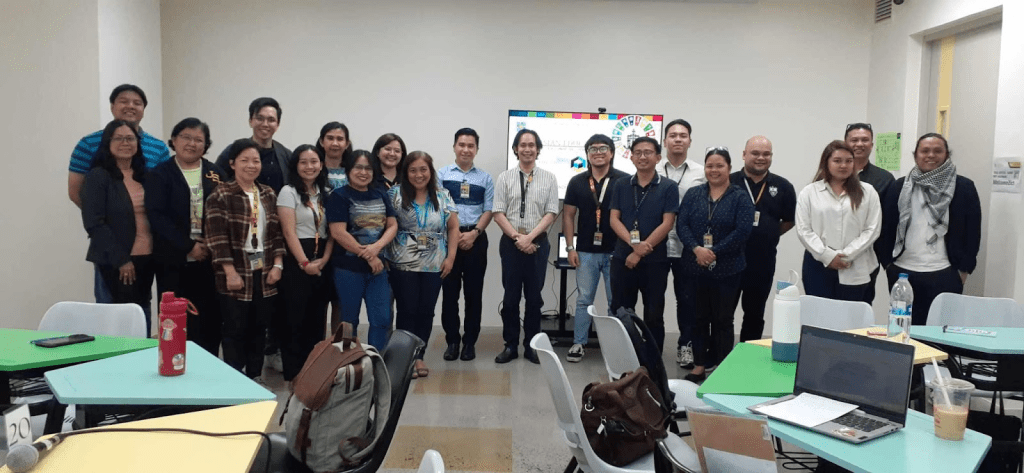The University, in its efforts to strengthen the integration of the different Sustainable Development Goals in the teaching and learning process, highlights sustainability as the core theme of the Institutional Faculty Training Program for the second semester held last January 7 to 10, 2025.

Through the Center for Innovative Teaching and Educational Delivery (CITED), which is under the Office of the Vice-Rector for Academic Affairs (OVRAA), and the Educational Technology Center, supported by the UST-Alfredo M. Velayo College of Accountancy, a forum with the theme “Thomasian Education for Sustainable Development and Internal Ecology,” was held online for all academic staff of the University. The goal of the forum was to (1) inculcate appreciation in Thomasian educators in promoting sustainable development and integral ecology as part of a Catholic institution, (2) engage in a reflective assessment of our readiness and capacity to embrace sustainability as individuals and as an institution, (3) realign and redesign curricular and operational practices with sustainable development goals, (4) promote Good Life Goals that encourage individual action toward achieving Sustainable Development Goals (SDGs) by integrating sustainable development into students’ curricular experiences, and (5) explore interdisciplinary collaborations for sustainable development.
In his keynote address, Most Rev. Gerardo A. Alminaza, D.D., Bishop of the Diocese of San Carlos stated that educational institutions like the University of Santo Tomas “play a pivotal role in molding current and future generations in emphasizing sustainability.” Bishop Alminaza also pushed for the adoption of the Laudato Si Schools Framework, inclusion of the rights of nature in the curriculum, and development of the internal ecology framework, based on local contexts.
The training program consisted of multiple technical sessions, covering topics related to the integration of sustainable development into the curriculum and its implication to the overall learning environment. Round–table discussions were also held to discuss sustainability in office practice and further interdisciplinary collaboration with academic units to achieve sustainability.
Several resource speakers like Ms. Bernadette Balamban, Chief Statistical Specialist of the Poverty and Human Development Statistics Division of the Philippine Statistics Authority; Dr. Yew Kee Ho, Deputy Dean of Chow Yi Ching School of Graduate Studies at the City University of Hong Kong; Mr. Santosh Khatri, Chief of Education of the UNESCO Regional Office; and Dr. Maria Assunta Cuyegkeng, Executive Director of the Lily Gokongwei Ngochua Leadership Academy of the Ateneo de Manila University shed light on the different aspects of sustainability in the context of an academic institution.
Created in 2017, CITED is responsible for the planning, implementing, and monitoring of faculty development training programs, with the aim of enhancing the teaching proficiency of academic staff. It plays a central role in coordinating training programs and logistics at both university-wide and unit-specific levels, meeting the unique needs of units.




